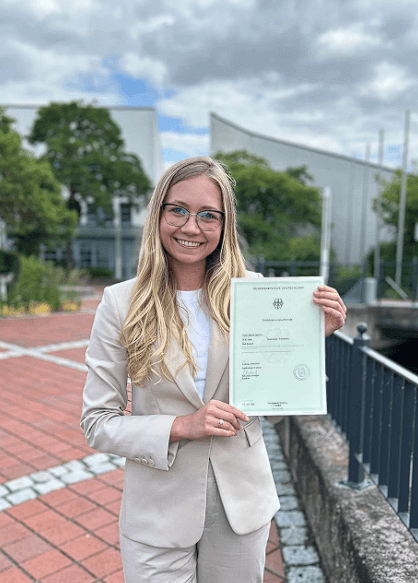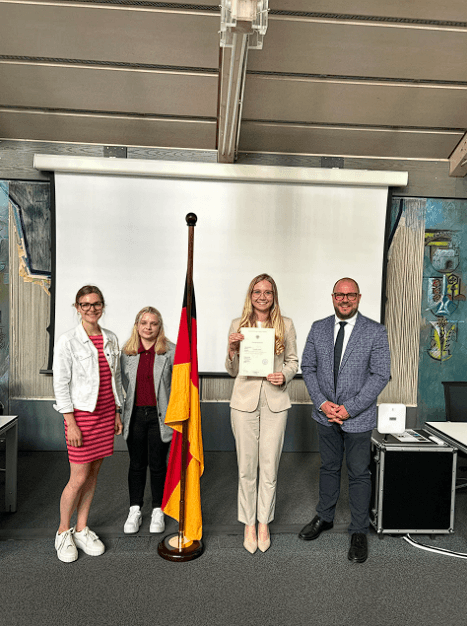
Obtaining German Citizenship
June 20, 2025 • Yuliya • Germany
1. 10 years in Germany – why didn’t I apply earlier?
I’ve been living in Germany since 2015, and technically, you can apply for citizenship after five years. But it really depends on what kind of residence permit you have. I had a student permit for a long time – and with that, your application will definitely be rejected. To qualify, you need a specific type of permit, like the one you get when you’re working full-time or married to a German citizen for example. Once I had a full-time job and the correct permit, I applied for citizenship after working for about three months.
2. It took… only 1.5 months to get citizenship after applying.
It was insanely fast! When I applied, my contact person told me it would probably take six months, but I received the invitation to the ceremony just one month after applying! The officer from the Naturalisation Department said that it would be an easy process, given that I have lived here for so long, completed German school and university, without ever claiming social benefits.
3. Applying from a small good local office makes a huge difference.
I have two official addresses: the first is in a small Bavarian town, where my boyfriend’s family lives, and the second is in Frankfurt. I applied through the district office (Landratsamt) of a small Bavarian town. Best decision ever! There are fewer people there in general, and fewer foreigners going through the citizenship process.
A friend of mine applied in Frankfurt and she has to wait over two years. (!) In small towns, everything is normally super organized: great communication, many available appointments, no long waiting times. I’m really glad I didn’t apply from Frankfurt.
4. I didn’t need that many documents.
The only thing that took a little longer was translating my birth certificate. Usually, you need the original document, a certified German translation and an apostille. Fortunately, my mom took care of everything back in Uzbekistan, so I didn’t have to take time off work or travel there myself. In total, I needed 10 documents for the application process, but this varies from person to person. Normally, you need to pass the naturalisation test and provide proof of a B2 level of German, for example. Since I finished school in Germany, I didn’t need to do any of that.
5. No need for a permanent work contract or to wait out the probation period.
I didn’t have an unlimited contract yet, but that wasn’t a problem. The only requirement was that I was working full-time when I applied for citizenship. Shortly before the final ceremony, they asked for my most recent payslip, and that was enough.
6. A quick but sweet ceremony.
Eleven of us were getting citizenship that day. The ceremony always takes place on Mondays, when everyone who is being naturalised that week is gathered together. Employee of the Naturalisation Department were present, including those who had handled our naturalisation certificates, as well as the Landrat himself.

He gave a short speech, then called each person up individually. We just had to say where we were from, how long we had been in Germany and what we did for a living. We also had to swear allegiance to the free and democratic basic order. At the end, we even received a small gift (local honey).
After all those years of studying, working, and building a life here, this moment feels like a true milestone. I love you, Germany